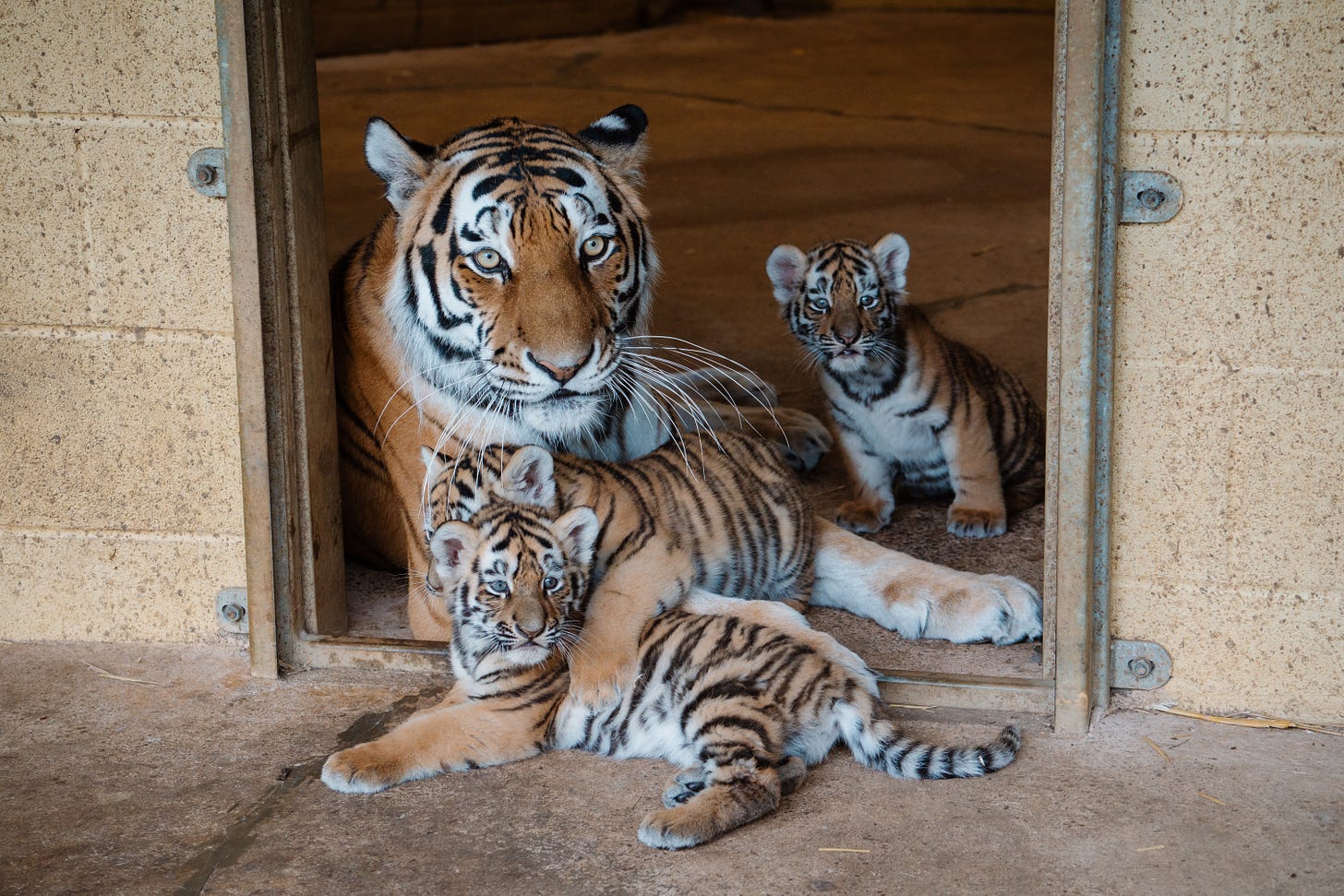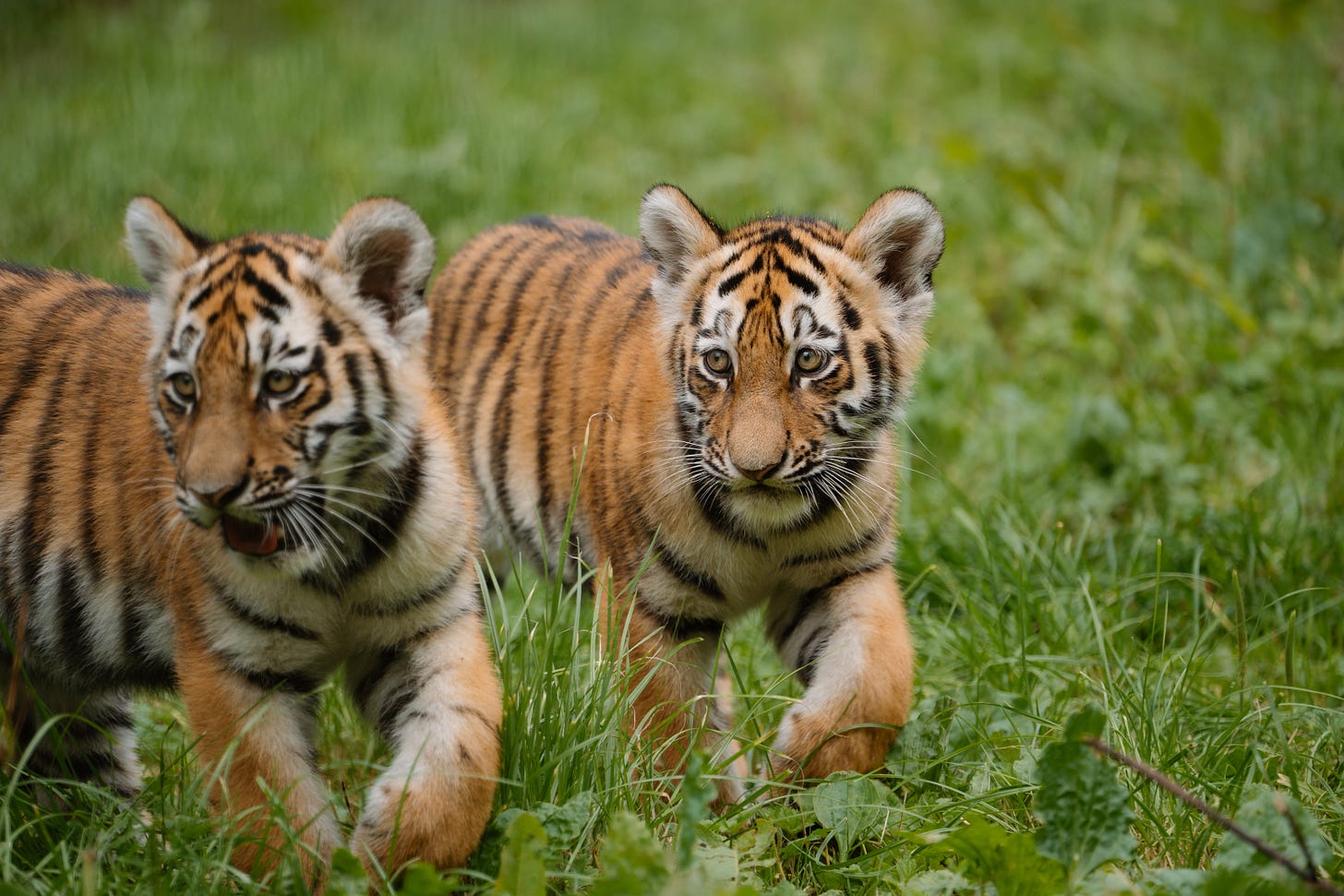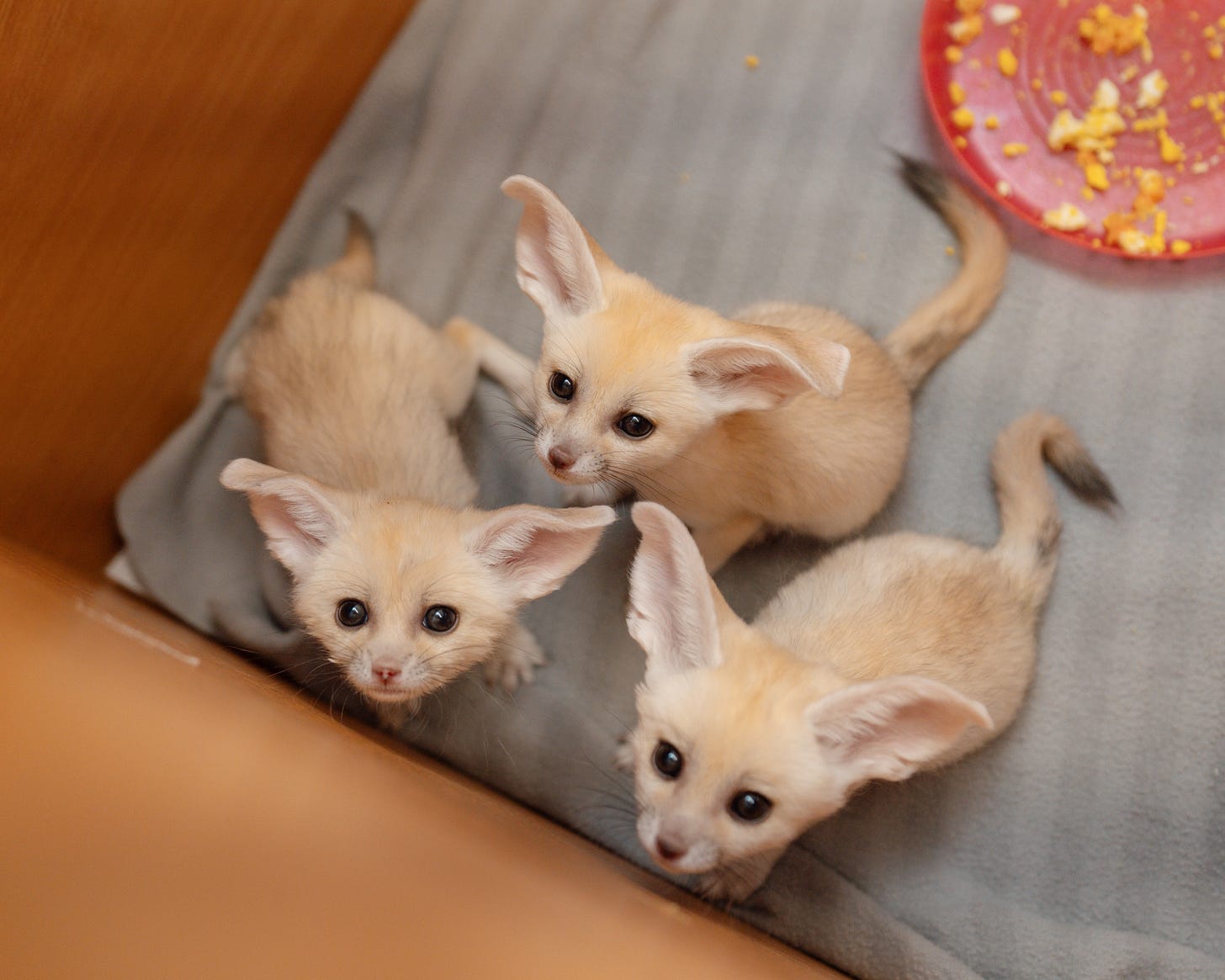Inside Salisbury: A birthday treat for rare Amur tiger cubs + adorable Fennec Fox kits
Inside Salisbury: Baby animal special
By Annette J Beveridge
A SPECIAL treat was prepared for four rare tiger cubs at a Wiltshire Safari Park for their second birthday.
Amur Tigers (Panthera tigris altaica) are mostly found in the Russian Far East, with small numbers ranging into Northern China. In the wild, they live 10-15 years on average, but in captivity, they can live up to 20 years.
The four cubs were born on May 9 in 2024 and are growing quickly.
After a public vote, they were named Heidi, Seeka, Dora-Boo and Ginger Biscuit. They will stay with mum for 12-18 months, giving Longleat the biggest family of Amur tigers to be seen on Safari in the UK.
The Amur tiger is one of the larger subspecies, with males weighing 160-190kg and females 110-130kg.
Lead keeper, Caleb Hall, said: “The cubs are about two-thirds the weight and size of mum and growing fast; Heidi is the largest at around 70-75kg, and the smallest is Dora-Boo at approx. 60-65kg. It’s hard to believe they were just 700g when they were born.
“They range in size, strength, confidence, speed and agility because they are not identical siblings and all have differences that would have a benefit to survival in the wild.
“They all enjoy playing, being in the pond, splashing and swimming and having naps in the sun, which Yana appreciates as it is tiring raising and looking after the four.”
The birth of these four tigers is important for the international breeding programme. The species is listed as endangered, with only about 450 in the world. Their arrival equated to more than 25% of births across Europe in the last two years.
The young tigers eat around 12kg of meat each week, and for their birthday treat, a frozen meat extract and ostrich egg cake with sardines as candles was given to them which was devoured in minutes.
Fellow lead keeper, Eloise Kilbane, added: “Yana is an exceptional Tiger and mother; she has always been good at nurturing each cub according to their strengths and weaknesses, ensuring they are the best they can be.
“For example, when the cubs practice hunting mum, Yana will only run and play with the cubs if they genuinely surprise her, which is teaching them that they have to stalk and to be subtle if they want to catch anything.
“She plays rough with the biggest cubs, teaching them how to fight, and plays smart with the smallest, teaching them to watch and observe the perfect time to surprise an attack.”
Fellow carnivore keeper, Ryan Baines, added: “Heidi loves food of all kinds, and she will often challenge mum for food and mum lets her win if she communicates properly. Ginger Biscuit is very playful and seems the youngest at heart, very watchful and cautious and especially loves running and splashing through the pond.
“Seeka is the second largest; very similar to mum, quite reserved and happy with her own company but loves playing and joining in when all her siblings do. Always the first to spot anything new to her environment.
“Dora-boo is the smallest and has a sweet nature. She likes spending time with mum and less likely to be involved in the rough and tumble with the others. Very smart and observant.”
Fennec Fox cubs at six weeks old
This stunning picture of three Fennec Fox kits looking at the camera shows how much the triplets have grown in just six weeks.
At birth, the boy and two girls weighed just 46g and are now nearly 10 times that amount, each at 350 g each. The kits are being hand-reared by a team of dedicated keepers at Longleat in Wiltshire who are feeding them milk six times a day alongside introducing solid food.
These kits are extra special as they are the only ones to have been born in UK zoos and safari parks in the last 12 months. Sadly, only around 40 per cent survive to adulthood.
Keeper Samantha Peake said: “They are all doing really well and we have started the weaning process; so far, cooked egg seems to be a favourite, but they are also eating vegetables and will soon move on to meat and insects
“They are starting to show lots of great natural fox behaviours, lots of digging, playing and pouncing on each other and practicing their hunting skills.”
The kits have not yet been named.









